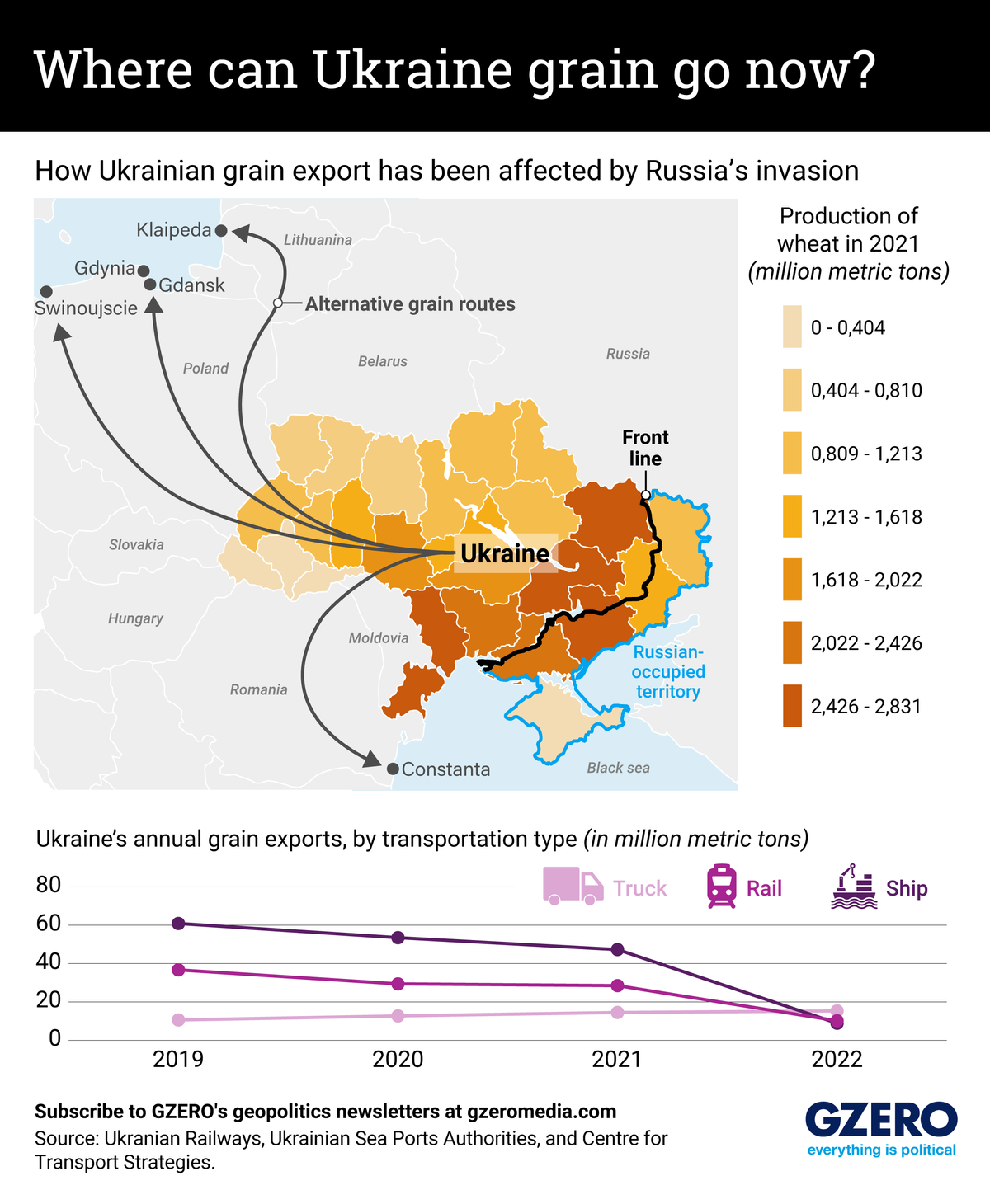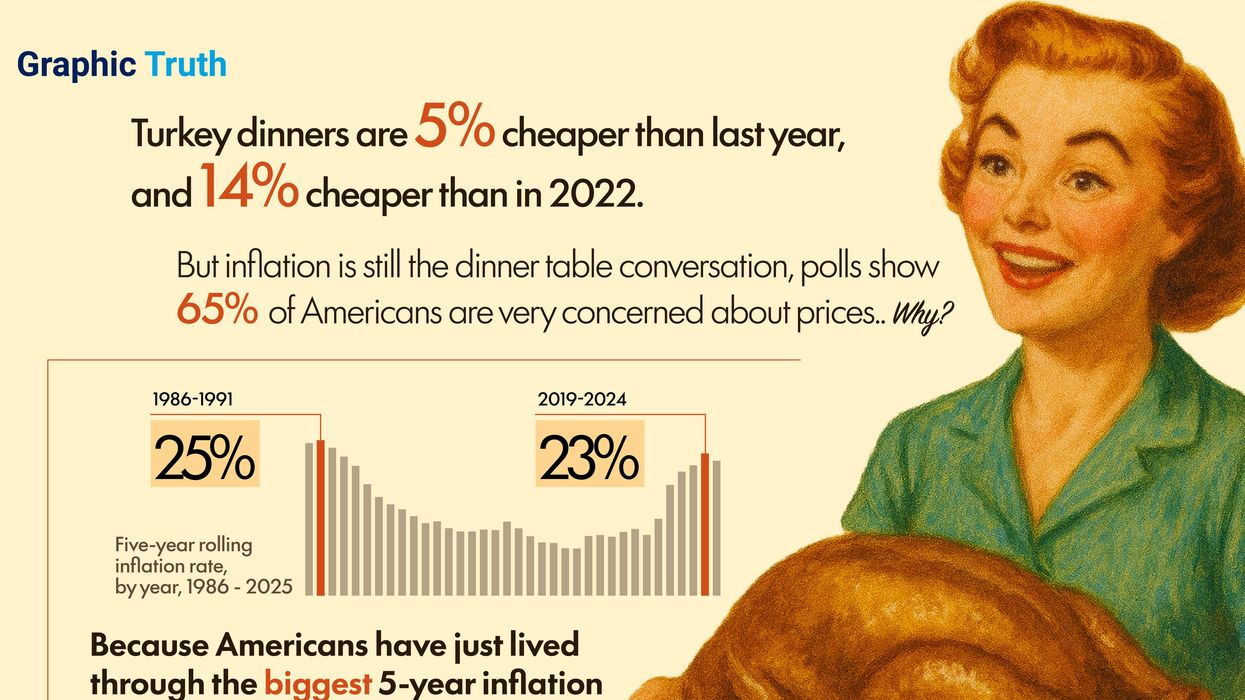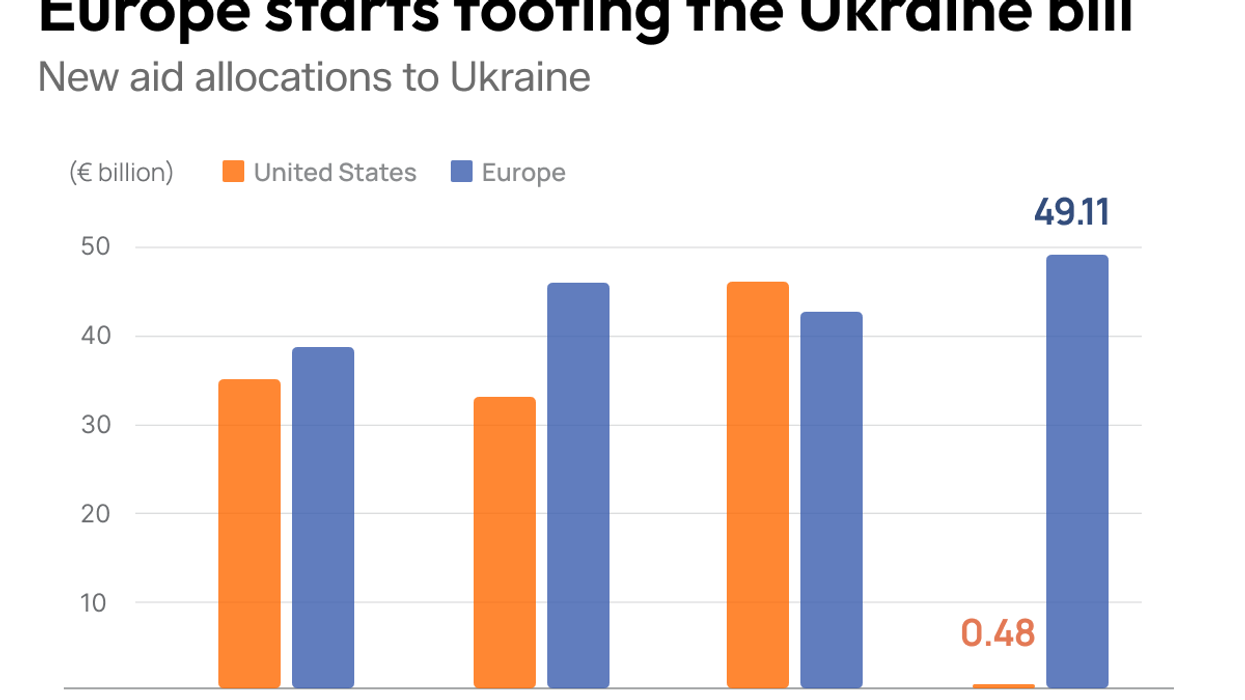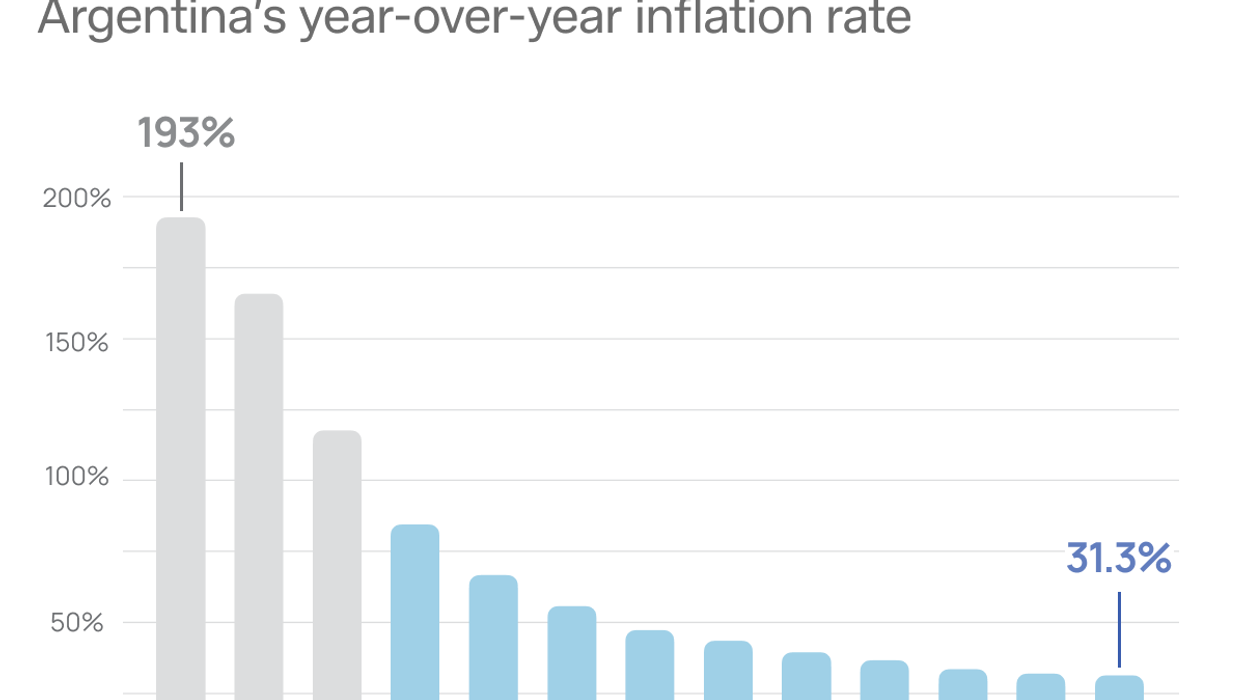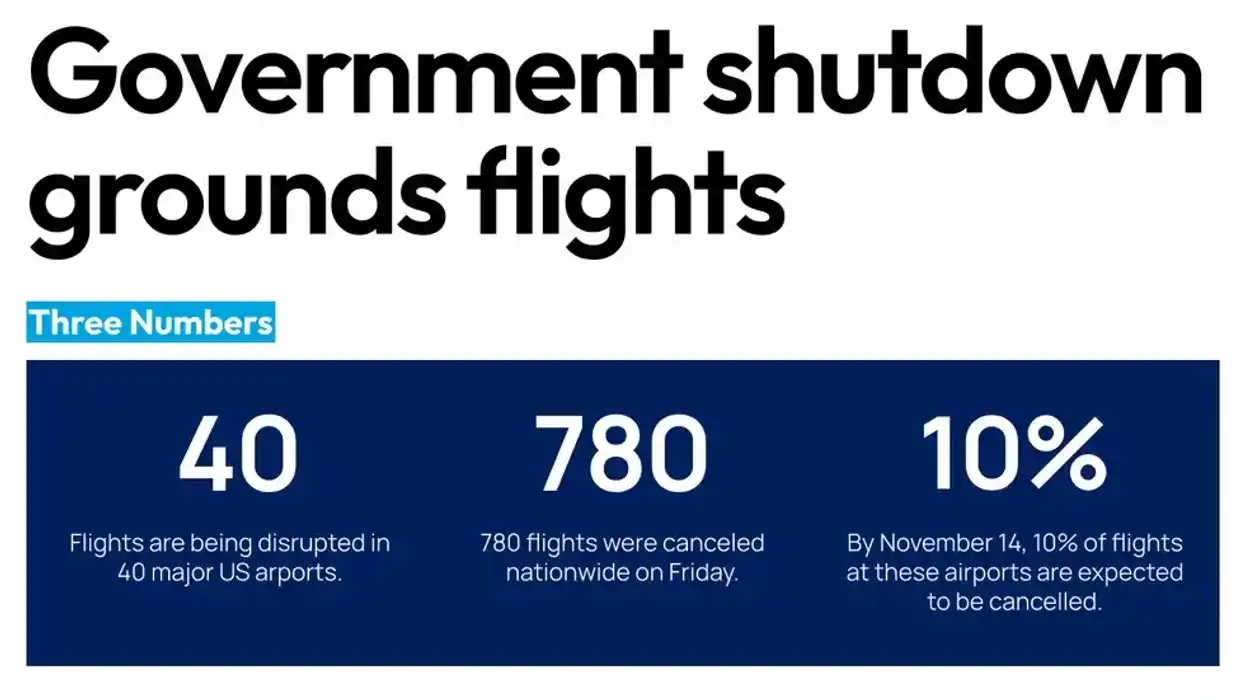Ukraine is known as the “breadbasket of Europe” thanks to the massive amounts of grain it grows and exports. But Ukrainian farmers have struggled to ship their crops since Russia’s invasion of Ukraine, and that just got a lot harder with Russia pulling out of the Black Sea grain initiative last week. Before Russia backed out, around 49% of Ukraine’s grain was shipped via the ports in Odesa protected under the deal.
Peter Ceretti, head of Eurasia Group’s geostrategy division, says the situation could worsen “if farmers decide to plant or harvest less of their land due to limited export options.” He is also concerned that factors like the destruction of the Kakhovka Dam, landmines, and Russia intensifying its attacks on Ukrainian agribusiness could further hurt exports.
Without its Black Sea ports, Ukrainian farmers have to ship their crops by rail or truck to neighboring EU countries, upping shipping costs. We look at how the war is encroaching on Ukraine’s biggest grain regions, how exports have declined since the war, and how much farther grain now must travel before it can be shipped to the rest of the world.
